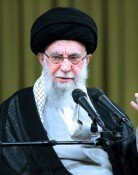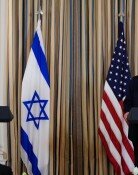Conflict on NK Nuclear Problem to Be Alleviated
Conflict on NK Nuclear Problem to Be Alleviated
Posted January. 04, 2004 23:18,
As North Korea has admitted the U.S. delegation access to the Yongbyon nuclear facilities, it seems that the conflict around the North Korea nuclear problem is getting closer to being solved, the New York Times reported on January 2.
The South Korean government, however, expects that this visit will not affect the six-nation talks, the Times added.
South China Morning Post, based in Hong Kong, has assessed that this visit reveals North Koreas interest in negotiation on the nuclear problem and that there is a high chance of a revolutionary breakthrough at the dragged-on negotiation table.
The Los Angeles Times and NBC, quoting the remarks of experts, reported on January 3 that North Korea will try to occupy a favorable spot on the negotiation table, showing its nuclear development status. It means that North Korea can utilize this visit politically.
There is still a possibility that China pressured North Korea to allow the U.S. delegation into the country, and that U.S. President George W. Bush has admitted the delegations visit to North Korea in order to prevent the nuclear problem from being a hot issue in the upcoming elections campaign, NBC reported.
Whether or not the delegation team can obtain useful information during the visit is still unclear, but maintaining any sort of contact with the North Korean side would be helpful in preventing any further nuclear research from going on in North Korea, NBC added.
On the other hand, the deputy spokesperson of U.S. State Department said on January 2 that, The delegation is not an official envoy from the U.S. government. The U.S. government is not affiliated with this visit. We dont support or object to this visit to North Korea.
After the U.S. envoys visit from January 6 to 10, the envoy will stop over in Seoul and Tokyo in succession to discuss the results of the visit, Kyodo News of Japan reported.
havefun@donga.com





![[단독]폴란드, 韓 해군 최초 잠수함 ‘장보고함’ 무상 양도 안받기로](https://dimg.donga.com/c/138/175/90/1/wps/NEWS/IMAGE/2026/02/27/133437397.1.jpg)

